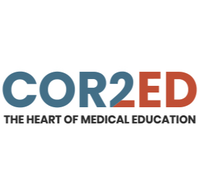
COR2ED The Heart of Medical Education
Our COR2ED channel brings together world-renowned medical experts to discuss and provide clear guidance on the latest scientific and clinical insights in various therapeutic areas, including oncology, cardiology, hemostasis, rare diseases, hemato-oncology, and endocrinology. At COR2ED, we are committed to providing balanced and evidence-based independent medical education to support healthcare ...
read more ↘ professionals in enhancing patient care. Many of our videos are created in collaboration with medical societies and patient advocacy groups.
↖ read less
read more ↘ professionals in enhancing patient care. Many of our videos are created in collaboration with medical societies and patient advocacy groups.
↖ read less
Playback speed
10 seconds
Advanced HCC: Treatment Options for Patients Ineligible for IO - Case Presentation
By
COR2ED The Heart of Medical Education
FEATURING
Sammy Saab
By
COR2ED The Heart of Medical Education
FEATURING
Sammy Saab
49 views
April 19, 2024
Programme description:
Explore treatment options, adverse event management and next steps in this patient case video on advanced hepatocellular carcinoma (HCC) and treatment options for patients ineligible for IO presented by Prof. Sammy Saab.
Go to the interactive version of this patient case video where you can interact and engage with valuable information, challenging questions, and clickable resources. You'll choose your preferred 1st line treatment option for a patient who is not eligible for IO, explore how to manage adverse events, and work through the next step after progression on 1st line treatment: https://cor2ed.com/hcc-connect/programmes/hcc-treatment-ineligible-io/
Clinical Takeaways
- There is a cohort of patients with advanced HCC who are not eligible for immunotherapy as 1st line treatment option
- This cohort consists of post-transplant recurrent patients or patients who have underlying active or uncontrolled auto-immune disease
- Tyrosine Kinase Inhibitors (TKIs), such as sorafenib and lenvatinib, would be the preferred 1st line treatment options for these patients
- Adverse events (AE) management for TKIs can either be dose interruption, reduction or discontinuation, depending on the type and severity of the AE
This educational programme is supported by an Independent Medical Education Grant from Bayer.
Publication date: January 2024
Explore treatment options, adverse event management and next steps in this patient case video on advanced hepatocellular carcinoma (HCC) and treatment options for patients ineligible for IO presented by Prof. Sammy Saab.
Go to the interactive version of this patient case video where you can interact and engage with valuable information, challenging questions, and clickable resources. You'll choose your preferred 1st line treatment option for a patient who is not eligible for IO, explore how to manage adverse events, and work through the next step after progression on 1st line treatment: https://cor2ed.com/hcc-connect/programmes/hcc-treatment-ineligible-io/
Clinical Takeaways
- There is a cohort of patients with advanced HCC who are not eligible for immunotherapy as 1st line treatment option
- This cohort consists of post-transplant recurrent patients or patients who have underlying active or uncontrolled auto-immune disease
- Tyrosine Kinase Inhibitors (TKIs), such as sorafenib and lenvatinib, would be the preferred 1st line treatment options for these patients
- Adverse events (AE) management for TKIs can either be dose interruption, reduction or discontinuation, depending on the type and severity of the AE
This educational programme is supported by an Independent Medical Education Grant from Bayer.
Publication date: January 2024
Comments 0
Login to view comments.
Click here to Login
Oncology










































